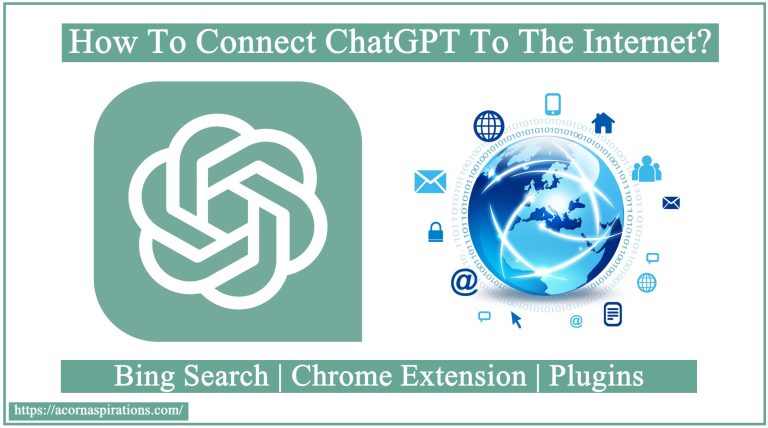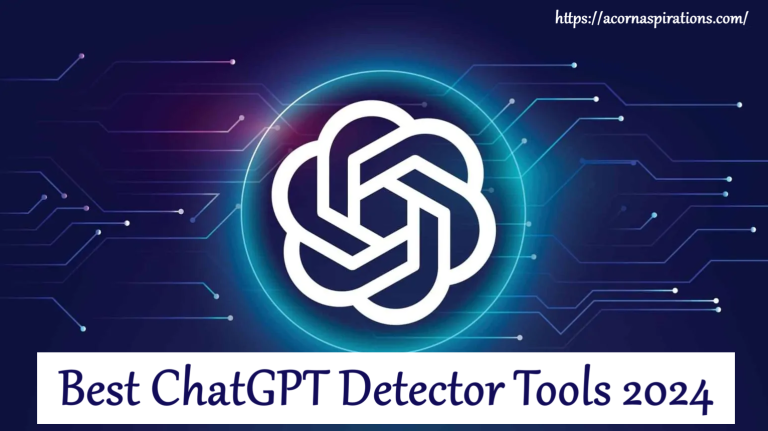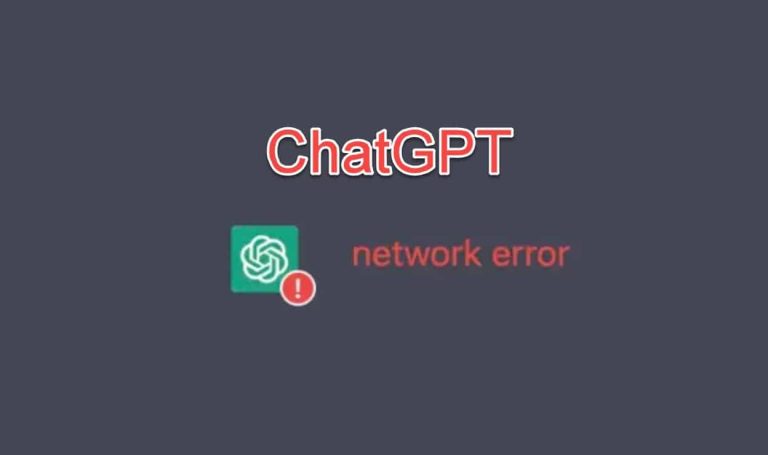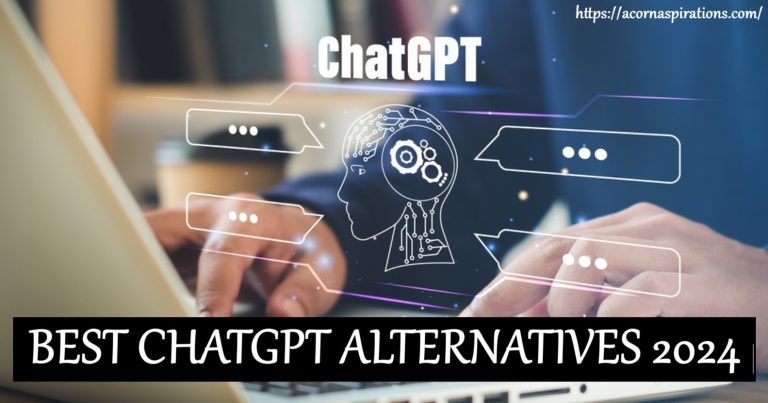Who Owns ChatGPT?
Do you know who owns ChatGPT and who are the masterminds behind this groundbreaking innovation? It’s been more than a year since ChatGPT made its debut in the tech market, but it has yet to get a worthy competitor. The powerful AI chatbot has completely revolutionized how humans interact with computers. Thanks to ChatGPT, the tasks that once took hours to complete can now be accomplished in mere minutes, whether it’s writing an essay, crafting a script, or even generating a programming code.
Even before the launch, there were some big names associated with it, including tech giant Microsoft, Sam Altman, and Tesla’s owner Elon Musk. Let’s find out where things stand after a year and who is currently overseeing the organization?
Who Owns ChatGPT?
As of January 2024, ChatGPT is owned by its parent company OpenAI, an American research laboratory dedicated to artificial intelligence. OpenAI was founded back in 2015, with a goal to develop safe and effective artificial intelligence technology which can outperform human intelligence at numerous tasks, mainly particularly those related to communication with computers and the web.
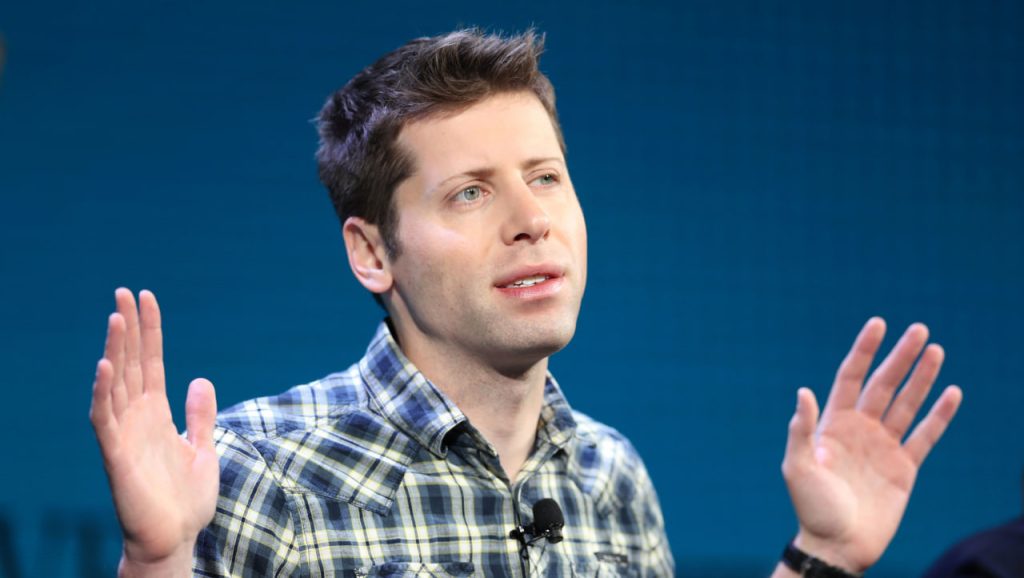
The founder committee had notable Silicon Valley big shots, including Tesla-fame Elon Musk, entrepreneur Sam Altman, PayPal founder Peter Thiel, Ilya Sutskever, Trevor Blackwell, Greg Brockman, Vicki Cheung, Durk Kingma, John Schulman, Jessica Livingston, Andrej Karpathy, Pamela Vagata, Wojciech Zaremba. It’s not clear as who was the chief instigator of the project, but according to the sources, Elon Musk and Sam Altman were at the forefront in the beginning, and also served the initial board members.
Sam Altman is the current CEO of OpenAI, yet it’s not clear who holds the ownership of the ChatGPT. Another big player involved is Microsoft, which invested $1 billion in OpenAI Global LLC in 2019 and an additional $10 billion in 2023. Although nothing is mentioned on the OpenAI website, according to the Wikipedia page, Microsoft holds the major ownership of OpenAI, with 49% of company share.
Who Created ChatGPT?
Since its beginning, OpenAI was invested in many AI projects, including the generative pretrained transformer (GPT-1) language model in 2018, GPT-2 in 2019, and GPT-3 in May 2020, which eventually became the brain behind ChatGPT.
Unfortunately, we don’t have any credible information on who is the chief scientist responsible for ChatGPT. However, considering that many founding committee members were computer scientists and programmers, it’s obvious that they are the ones who developed the GPT language models and eventually ChatGPT.
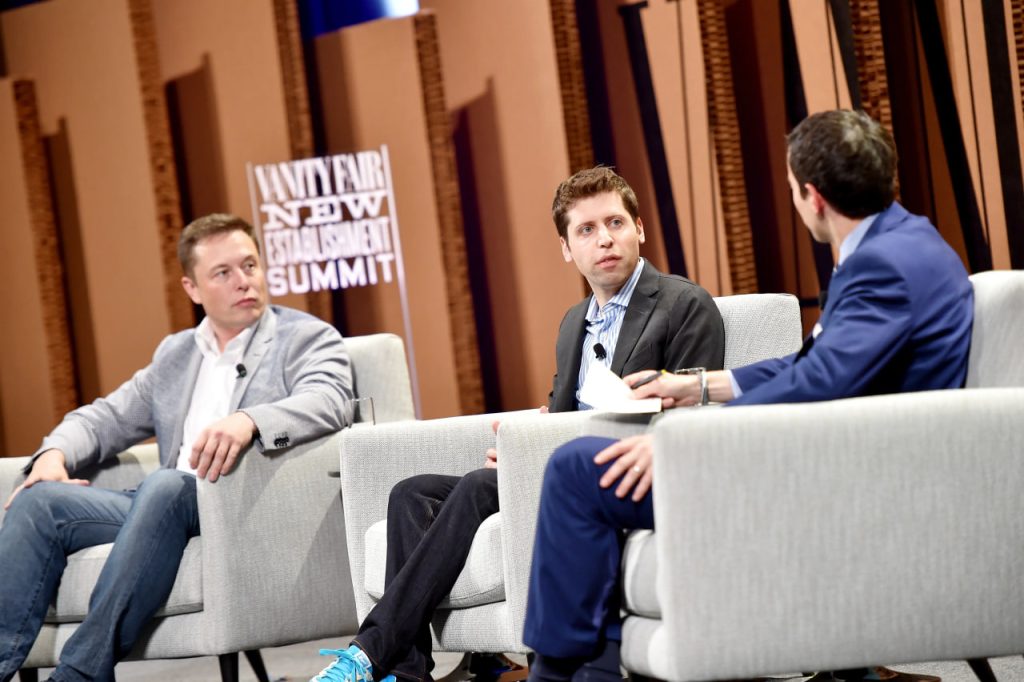
According to one more source, Ilya Sutskever, a Canadian Israeli computer expert developed the core design and functionality of ChatGPT. Sutskever was one of the founding fathers of OpenAI and held the position of chief scientist until the Samt Altman firing fiasco in laye 2023. But, evidently, creation of Chat GPT website was a collective effort from the computer experts’ team at Open AI, including:
- Samt Altman – Project head
- Ilya Sutskever – Chief scientist and Machine Learning expert
- Greg Brockman – Software developer
- Trevor Blackwell – Computer programmer, specialist in Humanoid robots
- Andrej Karpathy – Computer Scientist, specialized in Deep Learning and Computer Vision
- Wojciech Zaremba – Computer scientist, AI specialist
How Does ChatGPT Work?
ChatGPT is an AI-based chatbot which is capable of comprehending and responding to human dialogues using natural language. The tool has undergone training using extensive datasets, containing texts, images, and information from numerous sources. The machine learning algorithms help the model to dissect the human queries and generate the appropriate response, containing required information in preferred manner, such as tone, word count, and structure.
Initially, ChatGPT was released with the GPT-3 model, which was later upgraded to GPT-3.5. In march 2023, nearly six months after the ChatGPT launch, OpenAI introduced the advanced GPT-4 model, capable of accepting text and image as input, generating 25000 words, and writing programming codes in nearly all programming languages.
With the introduction of GPT-4, OpenAI unveiled ChatGPT Plus, a subscription-based version which gives you access to the GPT-4 model, along with premium features like priority access and plugin support.
Is Sam Altman Back with OpenAI?
In November 2023, the tech world was rocked by a series of sensational events as OpenAI announced the termination of its CEO Sam Altman. OpenAI’s non-profit board of directors took a unanimous decision to dismiss Sam, accusing him of being dishonest in his communication with board and shareholders. Not only that, Greg Brockman was also removed from his President’s post. Within hours of Sam’s exit from the company he founded, nearly all OpenAI employees threatened to quit, putting the biggest AI company in jeopardy.
Sam’s exit wouldn’t only prove disastrous for the ongoing AI project but could also risk the billions of dollars of investment from Microsoft, which clearly were not in favor of the decision. No wonder, Microsoft held a full-court press, pressurizing the OpenAI board of directors to bring Sam back at any cost.
Finally, after three CEO changes in 4 days and long negotiation involving Microsoft, Sam, and the board, OpenAI ultimately decided to reinstate Sam Altman as the CEO of the company, along with Greg Brockman. However, in another dramatic turn, the chief scientist Sutskever stepped down from his post, along with three other board members.
Is Microsoft Still Partnering with OpenAI?
Microsoft, the leading technology organization, has consistently championed the cause of artificial intelligence. No wonder, it was the first major investor of OpenAI and remained so ever since. When Sam Altman was fired, it was Microsoft which took the matter into their hands and assured his return as the CEO of the company. Since 2019, the company has made two significant investments in OpenAI, and the partnership seems to endure in the coming years with many groundbreaking projects in the pipeline.
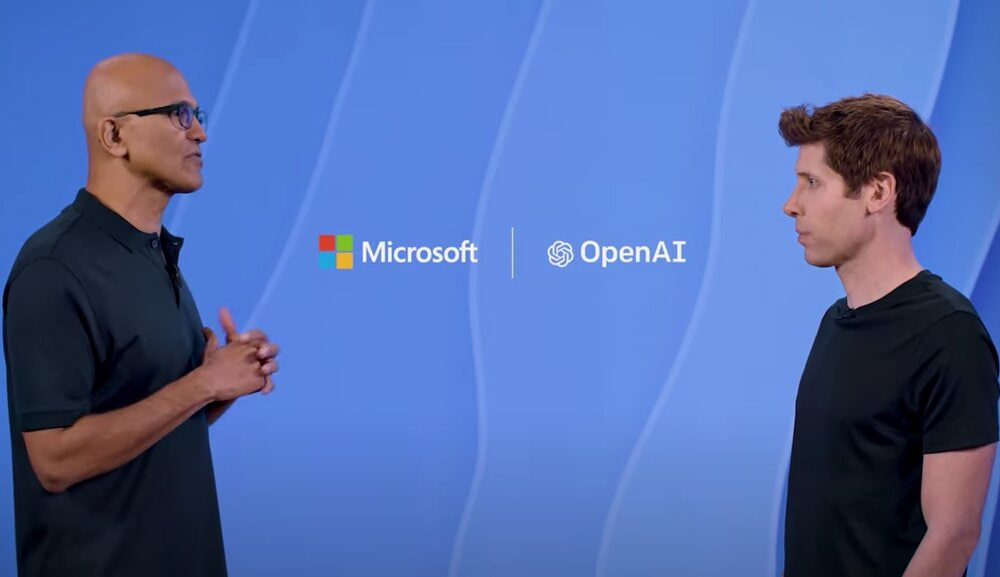
In 2019, OpenAI shifted from non-profit to for-profit as the initial funding failed to fuel the AI development projects at the time. Microsoft was the first major global organization to make a staggering $1 billion contribution to OpenAI, granting access to its Azure supercomputing cloud platform to support additional research and development efforts.
“We will run a very tight feedback loop for improvement and try to make our mistakes while the stakes are low. But it’s impossible to get this right with no contact with reality. We are learning so much from ChatGPT; it’s going to get a lot better, less annoying, and more useful fast,” – Sam Altman on Twitter.
In January 2023, Microsoft announced a new multi-year $10 billion deal with OpenAI. The bulk of this investment involves OpenAI acquiring access to Microsoft’s cloud network and other available technologies, offering essential computing resources crucial for training and operating language models.
“We are working with Microsoft to build the supercomputing foundation on which we will build AGI. We believe it’s crucial that AGI is deployed safely and securely and that its economic benefits are widely distributed,” – Sam Altman, CEO, OpenA
Following this investment, Microsoft also reintroduced Bing search engine, this time with built-in ChatGPT feature, along with Bing Chat – an AI-based chatbot, capable of communicating in natural language while also bringing results from the web.
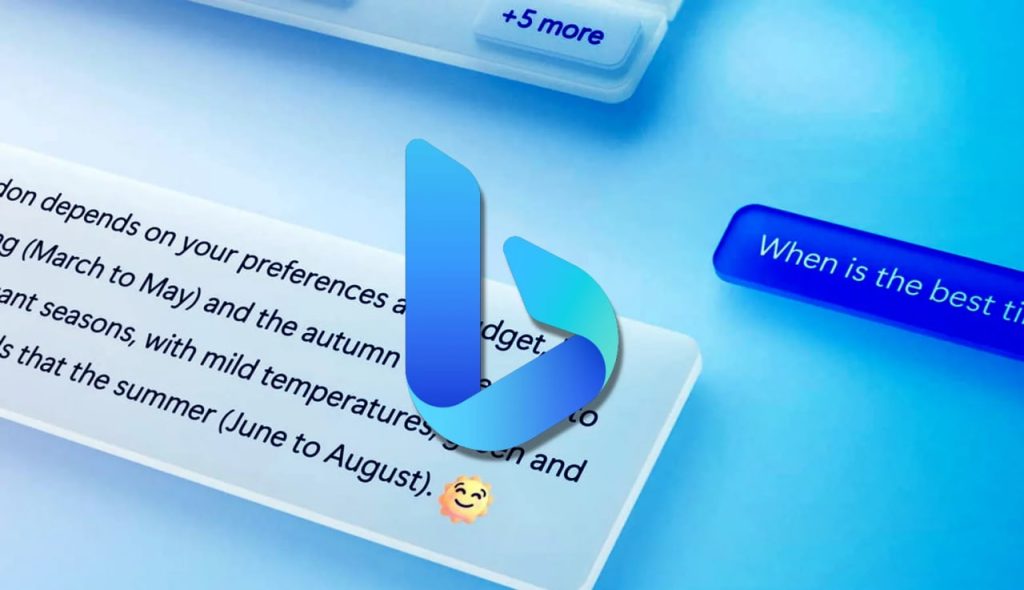
Does Elon Musk Own ChatGPT?
When ChatGPT was released, many believed that Elon Musk was the driving force behind the innovation of ChatGPT. Yes, Musk was a key member of the founding committee and made the biggest funding, but, currently, there is no link between OpenAI and the Tesla CEO.
Musk who is known for his straightforward approach supported the non-profit OpenAI model, as he believed it had the potential to end the monopoly of Google and Microsoft in the field of internet. As a co-founder, he monitored the company’s initial developments, but mostly on the financial end. Musk didn’t play any role in the actual development of ChatGPT, which was designed by the group of scientists and developers at OpenAI.
Why Did Elon Musk Resign from OpenAI?
In February 2018 Elon Musk announced his resignation from the board, ending his three-year association with the company. Although he is not officially involved directly or indirectly with OpenAI, he claimed to remain a donor.
There are many theories as to why Musk left the company he co-founded. The Tesla chief has been one of the few philanthropists who recognized the importance of artificial intelligence in its early days. His Tesla self-driving cars are a prime example of his excellence in the field of AI. So why did it happen?
According to Elon himself, his resignation was a result of potential conflict of interest with his role as Tesla CEO due to the concurrent development of Tesla auto-driving vehicles and AI technologies. However, Altman suggested that Elon felt that the company had drifted with its original direction and couldn’t compete with market leaders like Google and IBM. He even suggested taking over OpenAI himself, which was turned down by the board.
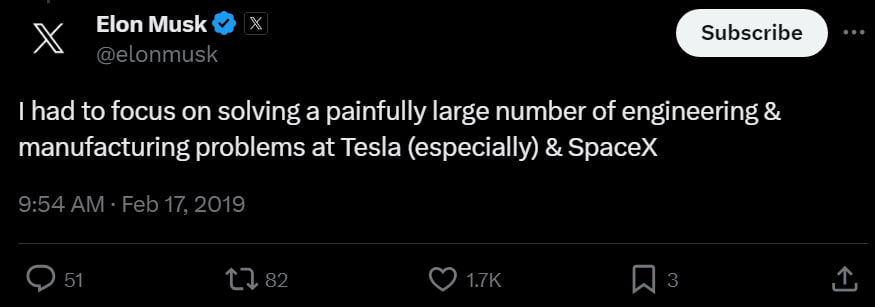
Another source claims that ever since OpenAI began transitioning to a for-profit model and joined hands with Microsoft, Musk’s departure was inevitable. With OpenAI, He aimed to challenge the domination of Google and Microsoft, which didn’t seem to happen. He accused Microsoft of indirectly taking over OpenAI through investments.
FAQs
1. Is chatgpt owned by Microsoft?
No, ChatGPT is owned by OpenAI. However, Microsoft owns $49% share of the company, making it a significant stakeholder.
2. Who owns OpenAI?
OpenAI was started by a group involving the CEO Sam Altman, Elon Musk, and other computer scientists and philanthropists. However, there is no concrete information on who is the real big boss.
3. Is ChatGPT free to use?
ChatGPT app and website both are absolutely free to use. However, to use the latest GPT-4 model, you will need a $20 ChatGPT Plus subscription.
4. What are the best ChatGPT alternatives in 2024?
Google Bard, Claude, and Microsoft Bing search are the best alternatives of ChatGPT right now.
Final Word
It doesn’t matter who owns ChatGPT or who designed it, the chatbot is here to stay and rule. Ever since its launch, rival companies have been trying hard to come up with a worthy alternative, yet we haven’t seen any so far. Whether it’s the genius of Sam Altman, initial support from Elon, or the big investments from Microsoft, their collective efforts have resulted in a remarkable product which will go down in history as an era defining technology.

Hi! I’m Mark Davis, a college student deeply interested in AI. I love blogging about the latest in AI, making it engaging and understandable. When not writing, I’m either traveling, lost in a novel, or playing rugby with friends. These hobbies not only refresh me but also inspire my AI adventures!

![How to Jailbreak ChatGPT? [With Prompts]](https://acornaspirations.com/wp-content/uploads/2024/01/chat-gpt-dan-1024x614-1-768x461.jpg)
